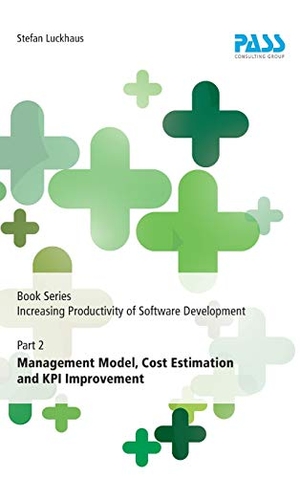Für statistische Zwecke und um bestmögliche Funktionalität zu bieten, speichert diese Website Cookies auf Ihrem Gerät. Das Speichern von Cookies kann in den Browser-Einstellungen deaktiviert werden. Wenn Sie die Website weiter nutzen, stimmen Sie der Verwendung von Cookies zu.
Cookie akzeptieren
Stefan Luckhaus
Book Series Increasing Productivity of Software Development, Part 2: Management Model, Cost Estimation and KPI Improvement
- PASS IT-Consulting Dipl.-Inf. G. Rienecker GmbH & Co. KG
- 2018
- Gebunden
- 132 Seiten
- ISBN 9783981956528
Book Series: "Increasing Productivity of Software Development": In software development, productivity is a measure of how much functionality can be developed in a given time and in compliance with specified quality criteria. If an increase in productivity succeeds, this increases the scope of the developed functionality and reduces the required time. Both features are desirable because software is the stuff innovations are made of. IT has changed almost all areas of life thanks to fundamental innovations. Our future will be dominated by virtualization and smart helpers, that is, devices equipped with intelligence. This makes software development a key competence. Today, for companies that develop software, productivity as well as time
Mehr
Weniger
zzgl. Versand
in Kürze